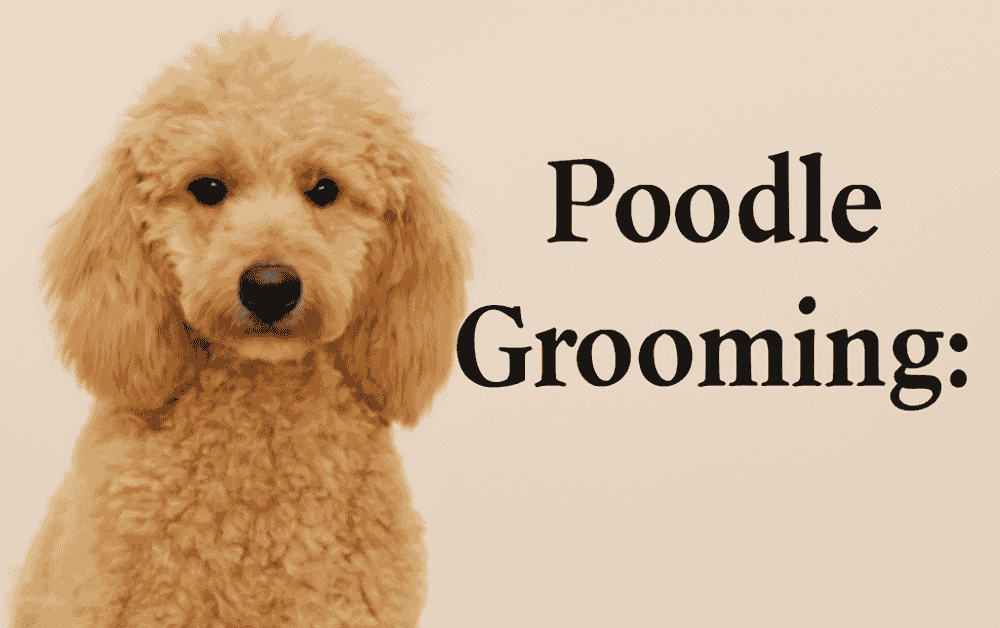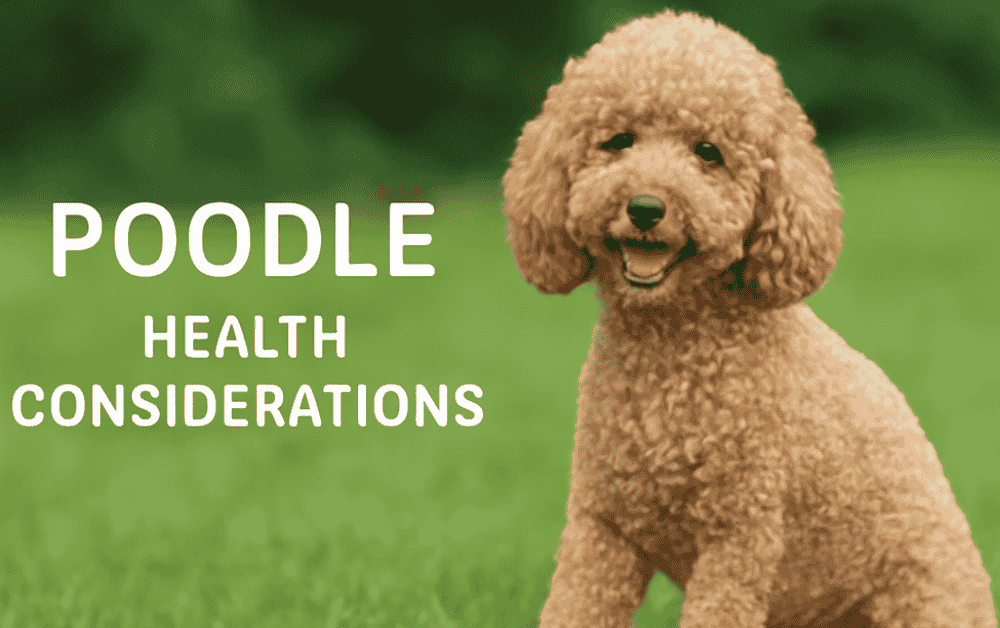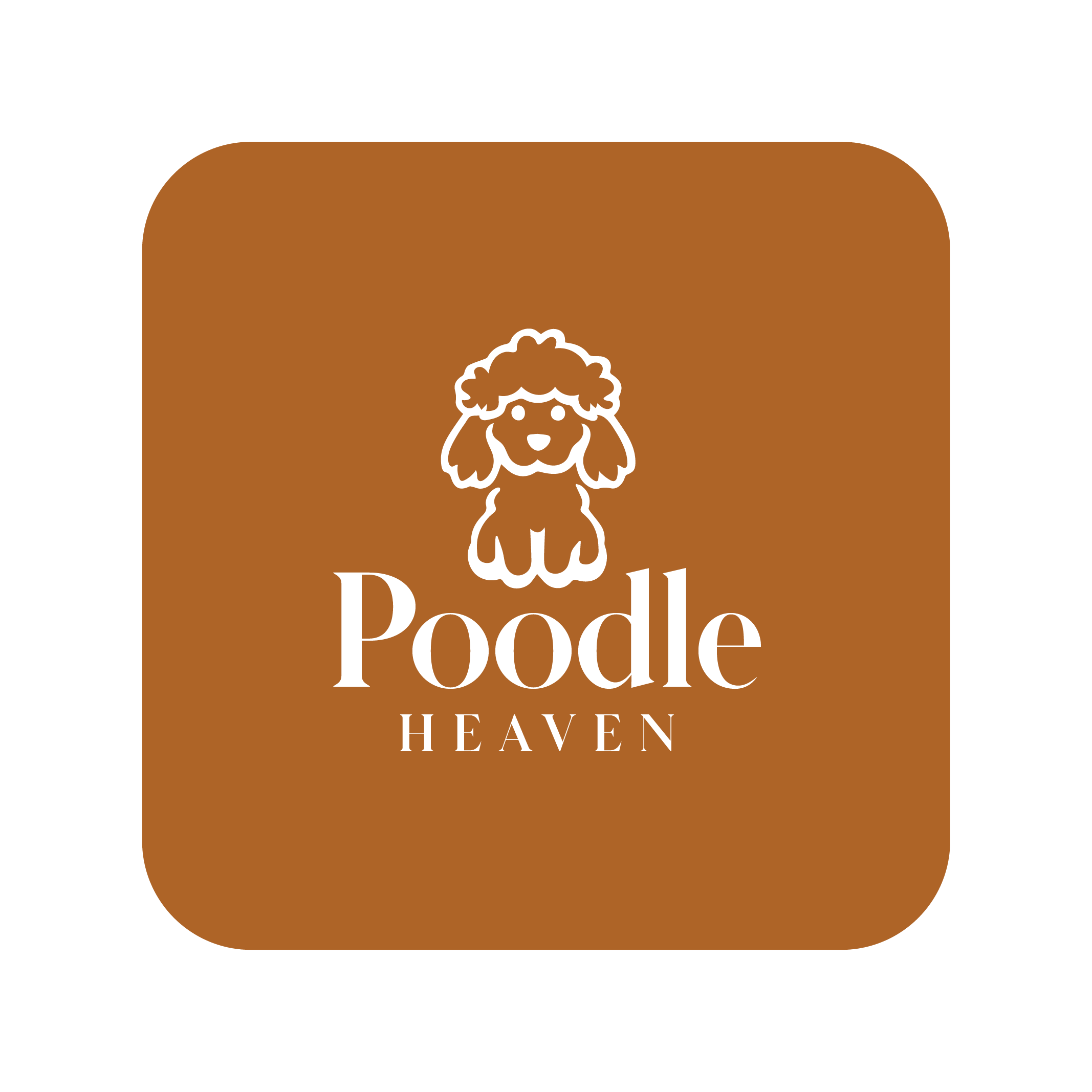In this article, we’ll break down the real facts about owning a Poodle, including grooming, exercise, health, and social needs. By the end, you’ll have a clear idea of whether a Poodle really deserves the “high-maintenance” label, or if it’s just a myth. Let’s dive in and see how much care they need.
Understanding the Poodle Breed
Poodles were originally bred in Germany as water retrievers, trained to retrieve game from water. Over time, they became popular across Europe, adapting to various roles beyond hunting. Today, Poodles are known for being intelligent, adaptable, and great companions.
Poodle Varieties
There are three types of Poodles:
- Toy Poodle: Small in size (under 10 pounds), perfect for smaller living spaces like apartments.
- Miniature Poodle: Medium-sized (10-15 pounds), great for active families needing a dog with more energy.
- Standard Poodle: The largest variety (40-70 pounds), well-suited for active families or individuals who have space for a bigger dog.
Poodle Temperament
Poodles are intelligent, easy to train, and eager to please. They thrive on attention and affection, making them great companions. Their agility and social nature mean they do well in families and with other pets, provided they receive enough stimulation and interaction.
Poodle’s Grooming Maintenance

Poodles are often considered high-maintenance due to their grooming needs. However, with the right routine and tools, their grooming can be much easier than expected. Let’s break down the essential grooming steps so you can manage your Poodle’s care effectively.
Coat Characteristics
Poodles have a dense, curly coat that doesn’t shed like many other breeds. Their coat grows continuously, requiring regular grooming to prevent matting and tangling. While this might seem like a lot of work, their non-shedding nature actually makes them ideal for people with allergies.
Brushing Frequency
You should brush your Poodle’s coat 3 to 4 times a week. Brushing regularly keeps the coat smooth, prevents mats from forming, and reduces the need for frequent professional grooming. It also promotes good skin health by distributing natural oils through the coat.
Professional Grooming
Poodles need professional grooming every 4 to 8 weeks, depending on their coat’s condition and the style you prefer. Regular grooming helps maintain their coat’s health and prevents any skin issues from going unnoticed. A groomer can trim and shape the coat to suit your preferences and check for any signs of skin problems.
Bathing
Bath your Poodle every 4 to 8 weeks to maintain a healthy coat and skin. Overbathing can dry out their skin, so avoid washing them too often. Use a dog-friendly shampoo to prevent irritation, and always ensure you thoroughly dry their coat after a bath to prevent moisture buildup.
At-Home Grooming Tips
Investing in quality grooming tools and learning a few basic techniques can significantly reduce your reliance on professional grooming. A good brush, comb, and clippers will help you manage your Poodle’s coat at home. Regular care also helps avoid mats and tangles, keeping your dog comfortable and looking their best.
Poodle’s Exercise Needs
Poodles are active dogs that need regular exercise to stay healthy and happy. They have plenty of energy, so you must meet their physical and mental needs daily. Here’s how to ensure your Poodle gets the right amount of exercise:
Daily Exercise Requirements
Poodles need at least 60 minutes of exercise each day. This can include activities like walks, playtime in the yard, or visits to the dog park. A mix of physical activities helps keep them fit and allows them to burn off energy. If you don’t provide enough exercise, your Poodle may become restless or develop behavioral problems.
Age Considerations
A Poodle’s exercise needs depend on their age. For example, a 3-month-old Poodle doesn’t require the same amount of exercise as an adult. A young puppy may only need around 15 minutes of exercise per session. As your Poodle grows, you can gradually increase their exercise time to meet their energy levels and developmental needs.
Mental Stimulation
Poodles are highly intelligent, which means they also need mental stimulation. Engaging in activities like puzzle toys, obedience training, and problem-solving games keeps their minds active. Without enough mental challenges, Poodles can become bored, which may lead to destructive behaviors. Regular training sessions and interactive toys will help keep your Poodle mentally engaged and happy.
Poodle’s Health Considerations

Poodles are generally healthy dogs, but they can develop certain health issues. By staying proactive, you can help them avoid or manage these conditions effectively.
Common Health Issues
Poodles are prone to genetic conditions like hip dysplasia and progressive retinal atrophy (PRA). Hip dysplasia can cause joint pain and mobility problems, while PRA can lead to blindness. By keeping an eye on their health and getting early check-ups, you can catch these issues before they worsen.
Preventative Measures
You can minimize health risks by taking a few simple steps. Schedule regular vet visits to catch problems early. Feed your Poodle a balanced diet, appropriate for their age and size, to support overall health. Make sure they stay active with daily exercise and mental stimulation to prevent obesity and other health complications.
What is the average Lifespan of poodles?
With proper care, Poodles can live up to 14 years or more. Their resilience and longevity depend on a healthy lifestyle, regular check-ups, and a good diet. You can help your Poodle enjoy a long, happy life by staying on top of their health needs.
Poodle’s Social Needs
Poodles are social, intelligent dogs that thrive on interaction. Understanding their social and training needs is key to helping them become well-adjusted companions.
Socialization
You must start socializing your Poodle early. Expose them to different environments, people, and other pets to ensure they grow into confident, well-rounded dogs. According to the American Kennel Club (AKC), early socialization is essential to avoid behavioral issues later in life, such as fear or aggression towards strangers or new situations.
Separation Anxiety
Poodles can experience separation anxiety because of their strong attachment to their owners. To avoid this, gradually increase the time you spend away from your dog. The Humane Society advises slowly acclimating your Poodle to being alone by starting with short periods and offering toys or puzzles to keep them occupied. Always avoid sudden changes to their routine to help prevent anxiety.
Cost of Poodle Ownership
Owning a Poodle comes with a financial commitment that includes both initial and ongoing costs. Before bringing a Poodle into your home, it’s important to understand these expenses so you can plan accordingly.
Initial Costs
Poodles can be expensive, especially if you’re buying from a reputable breeder. Prices typically range from $1,000 to $2,000, depending on the Poodle’s size and lineage. This cost reflects the breeder’s investment in health testing and early care.
Ongoing Expenses
Beyond the initial cost, you’ll have regular expenses like grooming, food, veterinary care, and training. Grooming costs around $50-$100 every 4-8 weeks. Monthly food and vet care can range from $50 to $100, with annual vet bills reaching $300-$500. Training classes may also be necessary to keep your Poodle well-behaved and mentally stimulated.
Budgeting Tips
To stay on top of the costs, create a monthly budget for your Poodle’s needs. Include food, grooming, and veterinary care in your budget. The American Kennel Club (AKC) suggests having a savings plan to cover unexpected expenses, such as medical emergencies.
Comparison with Other Breeds: Poodles vs. Other Dogs
Poodles often get labeled as high-maintenance due to their grooming needs. However, when compared to other breeds, they can actually be easier to manage in certain areas.
Maintenance Comparison
While Poodles require more grooming than many breeds because of their curly coats, they are relatively low-maintenance in terms of shedding. Unlike breeds that shed heavily, Poodles shed very little, making them a great choice for people with allergies. Regular grooming, though necessary, keeps their coat manageable.
Suitability
Poodles are a good fit for active individuals or families who can meet their physical and social needs. They enjoy exercise and mental stimulation, so they thrive in environments where they get daily walks, playtime, and interaction. If you’re looking for a dog that loves to engage and isn’t overly demanding in terms of upkeep, a Poodle could be a great match.
Conclusion
Poodles need regular grooming and exercise, but their intelligence and trainability make them easy to manage for dedicated owners. By sticking to a routine, you can meet their needs without difficulty, and they will be great companions. While grooming might require more effort than with some other breeds, Poodles are low-maintenance overall when it comes to shedding and general care. If you’re committed to their grooming and exercise, a Poodle makes a highly rewarding, manageable pet.
Read Also: Are Poodles Easy to Train
Read Also: Are Poodles Good Family Pets
FAQs About Poodle’s Maintenance
Do Poodles shed a lot?
Poodles shed very little, which is one of the reasons they are often considered hypoallergenic. Their curly coat grows continuously and does not shed like other breeds. However, this means they require regular grooming to prevent their coat from matting and tangling.
Can Poodles live in an apartment?
Yes, Poodles can adapt well to apartment living, especially the Toy and Miniature varieties. They do not require a lot of space and are generally quiet, which makes them well-suited for smaller living spaces. However, they still need regular exercise and mental stimulation, so daily walks and interactive playtime are essential.
Are Poodles good for families with children?
Yes, Poodles are excellent family pets. They are intelligent, social, and affectionate, making them great companions for children. Poodles, particularly the Toy and Miniature varieties, are well-suited for families with younger kids. As long as they are properly socialized and trained, they do well with children and other pets.
How do I socialize my Poodle properly?
Socialization is crucial for Poodles to develop into well-adjusted adults. Start socializing your Poodle early, ideally between 3 to 14 weeks of age, by exposing them to various people, environments, and other animals in a positive and controlled manner. Use positive reinforcement techniques to encourage good behavior and build confidence.
Are Poodles hypoallergenic?
Poodles are often considered hypoallergenic due to their low-shedding, curly coats. Their hair grows continuously and sheds minimally, which can reduce the amount of dander in the environment. However, no dog breed is completely hypoallergenic, and individuals with allergies may still react to proteins found in a Poodle’s skin cells, saliva, or urine.

